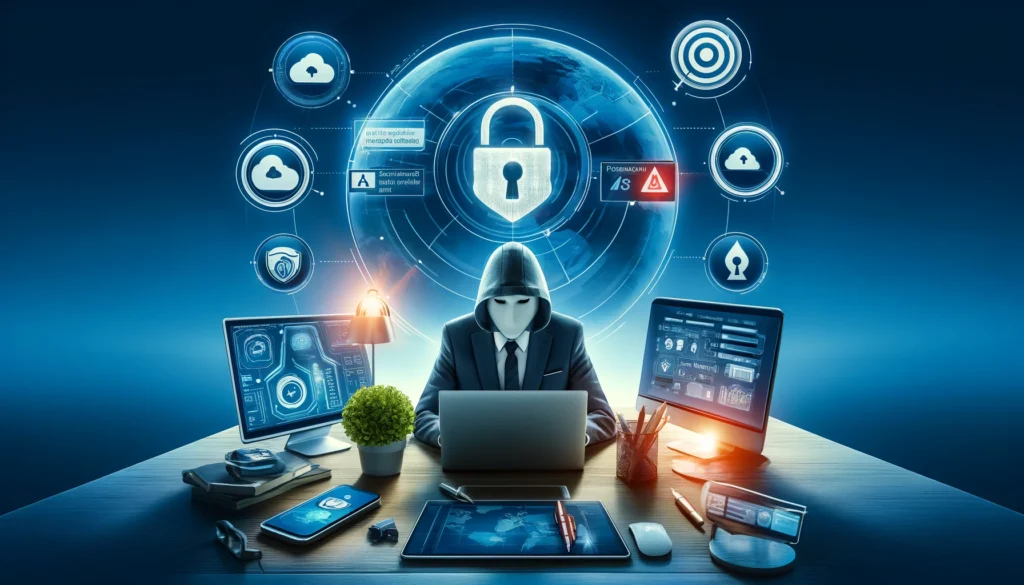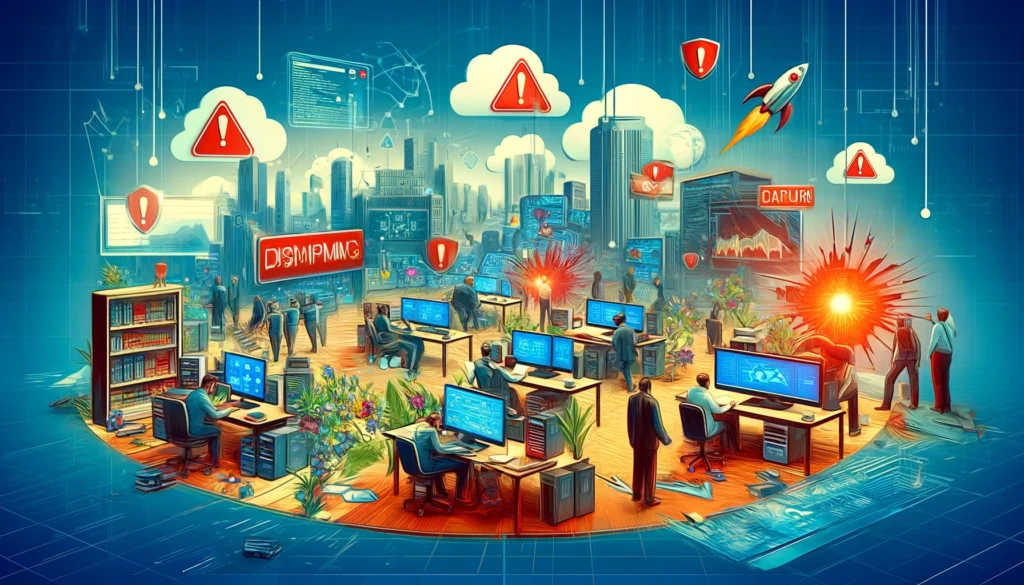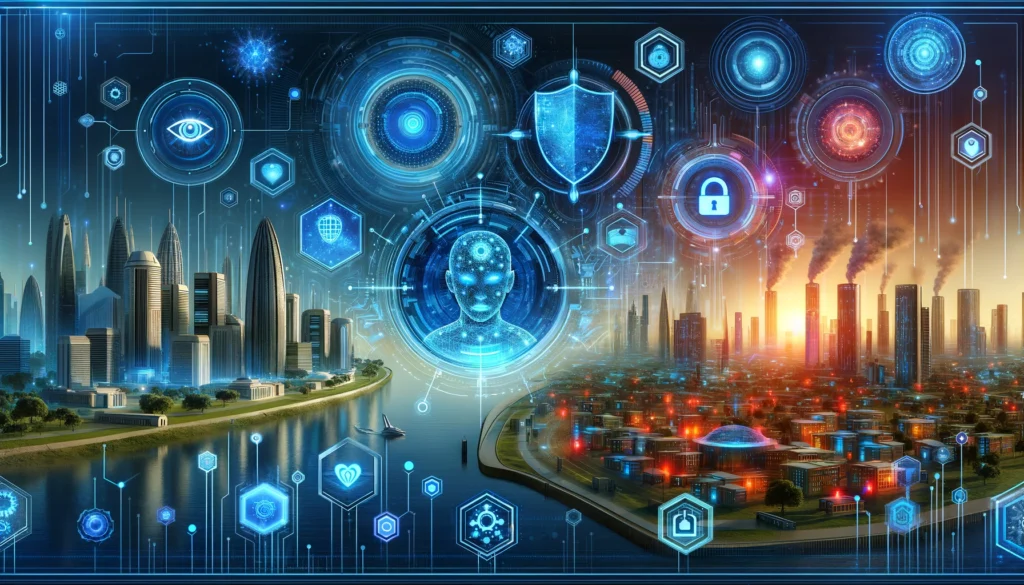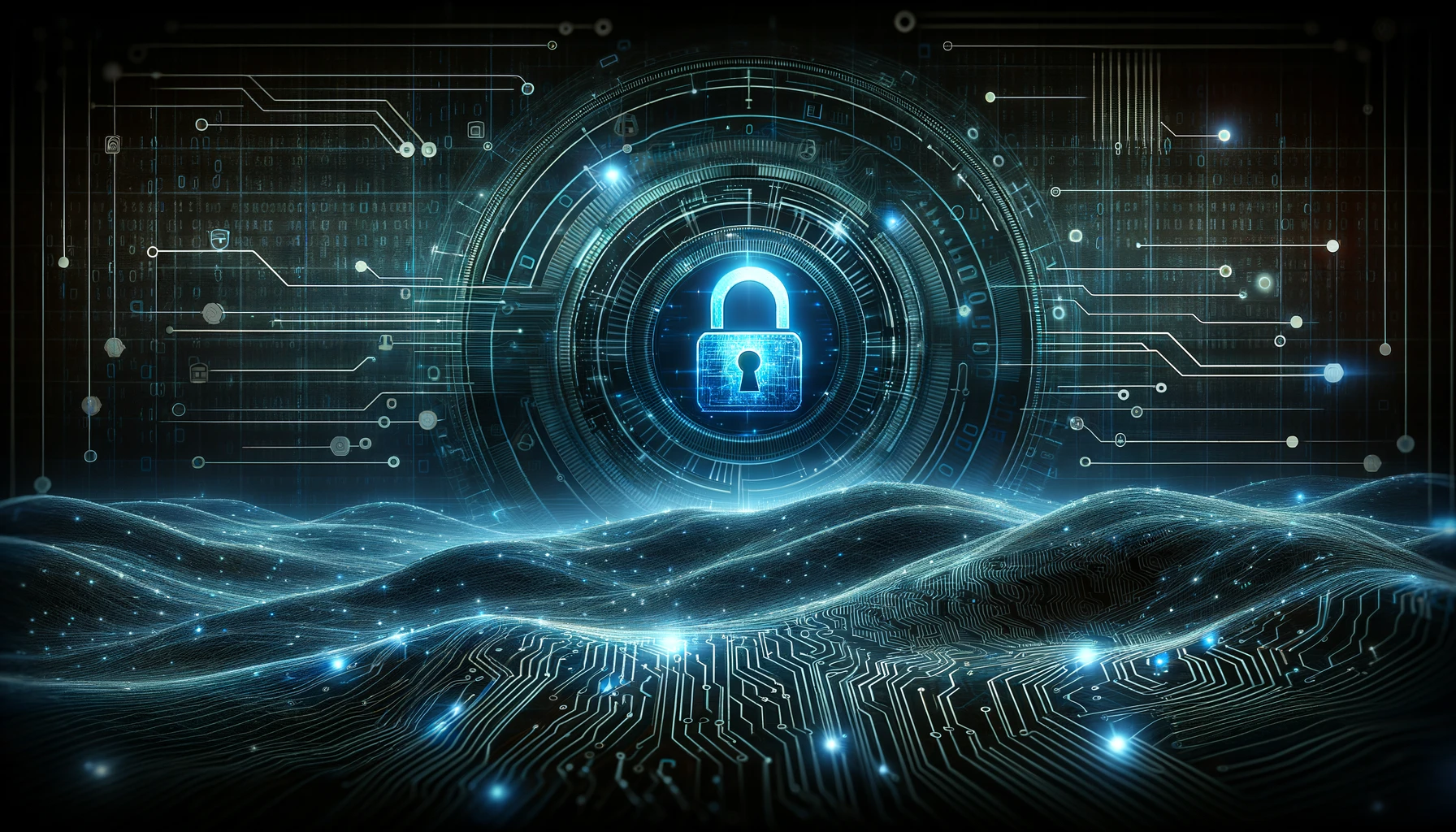The Importance of Cybersecurity in Today’s Digital World
Introduction
In today’s rapidly evolving digital landscape, cybersecurity stands as a critical defense mechanism against a myriad of online threats. As we integrate digital solutions into every aspect of our lives—from personal banking to managing national infrastructure—the potential vulnerabilities that cybercriminals can exploit multiply. This article explores the vital importance of cybersecurity, highlights significant cyberattacks, and discusses their impacts on our digital world.
Understanding Cybersecurity: A Fundamental Overview
What is Cybersecurity?
Cybersecurity refers to the practice of protecting systems, networks, and programs from digital attacks. These cyberattacks are usually aimed at accessing, changing, or destroying sensitive information, extorting money from users, or interrupting normal business processes.
The Layers of Cybersecurity: Protection, Detection, and Response
Implementing effective cybersecurity measures is particularly challenging today because there are more devices than people, and attackers are becoming more innovative. A well-rounded cybersecurity strategy involves multiple layers of protection spread across the computers, networks, programs, or data that one intends to keep safe.
The Significance of Cybersecurity in Various Sectors

Government: Securing National Infrastructure
Governments across the globe face numerous cybersecurity challenges. They need to protect data related to national security, citizens’ personal information, and critical infrastructure from potential cyberattacks.
Business: Safeguarding Corporate Assets
For businesses, cybersecurity is essential to protect proprietary information and maintain customer trust. A breach can result in significant financial losses due to the theft of corporate information, disruption of trading, and the costs associated with repairing affected systems.
Individuals: Protecting Personal Information
For individuals, cybersecurity involves protecting personal information that could be used in identity theft. Personal devices like smartphones and tablets are also vulnerable to attacks.
Historical Perspectives on Cybersecurity
Early Days of Cybersecurity
The need for cybersecurity became apparent as soon as computers became integral to business operations. The history of cybersecurity begins with the history of computer security and is marked by the evolving complexity of attacks and the measures taken to counteract them.
Major Cyberattacks and Their Impact

The Target Data Breach (2013)
One of the most infamous cyberattacks was the 2013 data breach of Target Corporation, where attackers stole credit and debit card information from 40 million customers. The breach ultimately cost Target $162 million, not including the loss of customer trust and subsequent sales declines.
WannaCry Ransomware Attack (2017)
In 2017, the WannaCry ransomware attack spread across 150 countries, affecting more than 230,000 computers. The attack targeted computers using Microsoft Windows as an operating system by encrypting data and demanding ransom payments in Bitcoin. The attack highlighted the importance of keeping software up to date to avoid security vulnerabilities.
NotPetya (2017)
NotPetya, initially thought to be ransomware but later identified as a cyberweapon, caused massive disruptions worldwide, particularly in Ukraine. It led to billions of dollars in damages and affected several global companies, including Maersk, Merck, and FedEx, each reporting losses of hundreds of millions of dollars.
Current Trends and Challenges in Cybersecurity
Rising Sophistication of Cyberattacks
As technology advances, so does the sophistication of cyberattacks. Hackers are now using AI and machine learning to conduct attacks that are faster, more efficient, and harder to detect.
Shortage of Cybersecurity Professionals
There is a significant shortage of skilled cybersecurity professionals. This gap in the workforce leaves organizations vulnerable to cyberattacks due to a lack of proper defense mechanisms.
Increasing Use of IoT Devices
The proliferation of Internet of Things (IoT) devices has opened new avenues for cyberattacks. Many IoT devices lack basic security features, making them easy targets for hackers.
The Future of Cybersecurity

Emerging Technologies in Cybersecurity
Future cybersecurity measures will increasingly rely on AI and machine learning to predict, detect, and respond to threats. Blockchain technology also presents new ways to secure data transactions.
Legislation and Regulation
Governments are beginning to implement more stringent regulations on data protection, such as the General Data Protection Regulation (GDPR) in the European Union. These regulations require businesses to take cybersecurity seriously or face hefty fines.
Enhancing Individual Awareness
Individuals must also enhance their awareness of cybersecurity practices. Simple actions like using complex passwords, enabling two-factor authentication, and keeping software up-to-date can significantly improve one’s digital security.
Conclusion
The importance of cybersecurity cannot be overstated. As the digital world grows, so does the need for robust cybersecurity measures. By understanding the risks, impacts of past attacks, and staying informed about best practices, individuals and organizations can better protect themselves from the ever-evolving threats of the digital age.
Frequently Asked Questions
- What is the most common type of cyberattack? Phishing attacks are among the most common, where attackers trick individuals into providing sensitive information.
- How can businesses improve their cybersecurity measures? Businesses can improve cybersecurity by conducting regular security audits, implementing multi-factor authentication, and training employees on cybersecurity best practices.
- What should I do if I am a victim of a cyberattack? Immediately report the incident to relevant authorities, change all passwords, and consider seeking professional cybersecurity assistance.
- How often should I update my passwords? It is recommended to update passwords every 3-6 months and to use complex, unique passwords for different accounts.
- Can antivirus software protect against all types of cyber threats? While antivirus software is essential, it cannot protect against all threats. Comprehensive cybersecurity involves multiple layers of protection.
- What are the career opportunities in cybersecurity? There are numerous career opportunities, including roles such as security analysts, penetration testers, security architects, and cybersecurity consultants.








